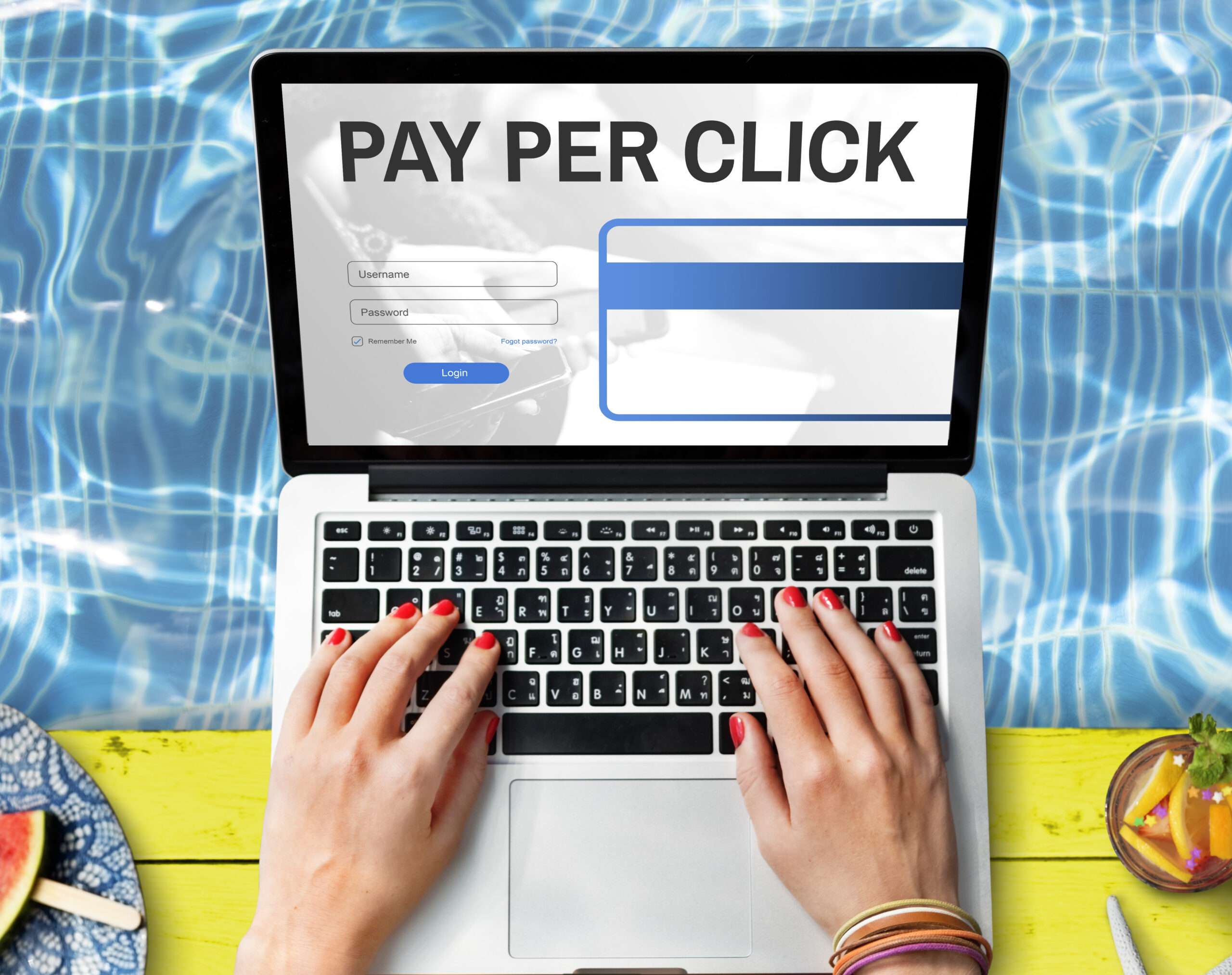
Pay Per Click
Pay Per Click (PPC) marketing is a well-liked digital marketing tactic that enables companies to advertise to their target market online. PPC is a cost-effective technique for businesses to increase traffic to their website and produce leads or sales because they only pay when someone clicks on their advertisement.
However, good PPC ad creation takes meticulous preparation and execution. In this article, we’ll go over the fundamentals of PPC advertising, its advantages, and offer advice on how to make PPC ads that will help your company reach its online marketing targets. Regardless of your level of marketing expertise, this article will offer insightful tips to help you enhance your PPC campaigns and get greater results.
PPC advertising has grown in popularity over time, and companies of all sizes and in all sectors are using it to increase traffic and sales. PPC advertising is expected to be one of the main drivers of this increase, with global digital advertising spending expected to reach $526 billion in 2024, according to a Statistic analysis.
PPC advertising enables companies to precisely target their target market by utilizing keywords, demographics, interests, and other factors. This makes it a highly efficient technique to attract new consumers because it guarantees that their advertising are displayed to those who are most likely to be interested in their product or service.
PPC advertising also gives companies the freedom to set their own spending limits and manage their advertising expenditure. This makes it a flexible and scalable digital marketing strategy because firms may start with a minimal budget and progressively expand it as they experience great results.
However, good PPC ad creation takes meticulous preparation and execution. Due to the intense competition in the digital advertising market, it’s critical to make ads that stand out and draw in your target market. In the sections that follow, we’ll go in-depth on the essentials of writing powerful PPC ads and offer advice on how to set up your campaigns for success.
What is Pay Per Click (PPC)?
Digital marketers who use pay per click (PPC) advertising pay a fee each time a customer clicks on one of their adverts. Driving traffic to a website or landing page so that users may find out more about a good or service and, ideally, become customers, is the aim of PPC advertising. Search engine results pages (SERPs), social media platforms, and other websites that have consented to display adverts are the usual places where PPC ads can be found. Advertisers place bids on keywords that are pertinent to their target market, and when users search for those phrases, their ads are displayed.
How Does Pay Per Click (PPC) Advertising Work?
PPC advertising is based on a system of bidding, in which marketers place bids on keywords that are pertinent to their target market. The search engine or platform will display the advertiser’s ad alongside other relevant adverts when a user searches for a keyword that the advertiser has placed a bid on.
The advertiser’s bid and the ad’s relevancy to the user’s search query are used to determine an ad’s position on the search engine results page. An advertiser’s ad will display higher on the results page the greater their bid is and the more pertinent it is to the user’s search query. A user is taken to the advertiser’s website or landing page when they click on one of their ads. The cost of that click is subsequently added to the advertiser’s PPC advertising budget as a fee.
Benefits of Pay Per Click (PPC)
- Cost-effective: PPC marketing is a good technique to attract specific customers to your landing page or website. You can manage your advertising expenses and increase your return on investment because you only pay when someone clicks on your advertisement.
- Targeted: You can reach your ideal client by using PPC advertising to target particular demographics and keywords. This enables you to develop programmes that are incredibly focused and more likely to result in leads or sales.
- Measurable: PPC marketing offers thorough analytics that let you monitor the success of your campaigns. You can monitor how many people are clicking on your advertising, how much you are spending, and how many sales you are making.
- Results immediately: PPC advertising can produce results quickly, which is especially helpful for companies that need to swiftly create leads or sales.
- Brand recognition: Users will still notice your company’s name and message even if they don’t click on your advertising. Future conversions may result from an increase in brand recognition and visibility thanks to this.

Keyword Research
Landing Pages
PPC landing pages (Pay-Per-Click) are specific web pages on a website that are created to convert site visitors who arrive via PPC adverts. These pages are designed to give visitors a tailored and concentrated experience, assisting them in finding what they are searching for and motivating them to perform a certain action, such as completing a form, making a purchase, or subscribing to a service.
By giving visitors a message that is succinct and in line with the advertisement they clicked on, a PPC landing page aims to boost the conversion rate of the PPC campaign. The layout of the landing page should be straightforward and user-friendly, and there should be a clear call to action that compels the visitor to do the required action.
Businesses should adhere to a few recommended practises for developing efficient PPC landing pages in order to accomplish this goal. These include connecting the ad wording to the material on the landing page, maintaining a simple design, coming up with a catchy title, utilising persuasive copy, integrating social proof, and emphasising the call-to-action.


Ad Targeting PPC
In conclusion, pay-per-click (PPC) advertising is an effective tool for increasing website traffic and conversions. You may maximise your ROI and accomplish your marketing objectives by targeting your adverts to particular consumers and conducting efficient keyword research.
It’s crucial to carry out extensive keyword research before setting up a PPC campaign and to use the knowledge you obtain to guide your ad targeting and content strategy. To make sure you’re getting the most out of your advertising budget, it’s also crucial to continuously evaluate and tweak your efforts.
The ability to develop effective ads that connect with your target audience and motivate them to act ultimately determines the outcome of your PPC campaign. With the right targeting, messaging, and optimization, you can create a PPC campaign that drives traffic, increases conversions, and helps you achieve your business goals.
Your PPC campaigns should be continuously assessed and improved over time. This entails tracking the effectiveness of your ads, experimenting with various targeting strategies and ad wording, and modifying your budget as necessary. You can make sure you’re getting the most out of your ad spend and accomplishing your marketing objectives by continuously improving your PPC approach.
PPC advertising has the potential to be a very successful technique to increase website traffic and conversion rates. You may maximise the efficacy of your ads and accomplish your business goals by employing the appropriate methods and consistently optimising your campaigns.
Budget control is yet another crucial factor in PPC advertising. Setting a budget is essential to maintaining the profitability and cost-effectiveness of your PPC campaign. You should establish a daily budget that is in line with your overall marketing goals after determining your maximum cost per click.
Additionally, it’s crucial to monitor your progress and modify your spending plan as required. To track the effectiveness of your campaign and identify the best ads and targeting strategies, use tools like Google Analytics. You can modify your budget allocation to maximise your ROI based on these findings.
Analysing competitors is another important component of PPC advertising. You can learn about the targeting methods, ad wording, and landing sites used by your rivals’ PPC campaigns. This might assist you in locating market gaps and modifying your own marketing to differentiate yourself from the competition.
Finally, it’s critical to stay current with PPC advertising trends and advancements. Maintaining a competitive edge requires remaining current with new targeting options, ad formats, and optimisation tactics because the environment of digital advertising is continuously changing.
Overall, a successful PPC campaign requires a combination of keyword research, ad targeting, ad copywriting, landing page optimization, retargeting, budget management, competitor analysis, and staying up-to-date with the latest trends and developments. By using these strategies effectively, you can create a profitable PPC campaign that drives traffic, generates leads, and increases conversions for your business.
